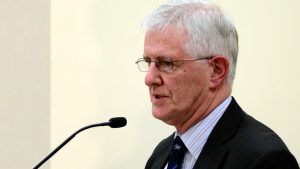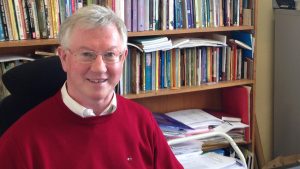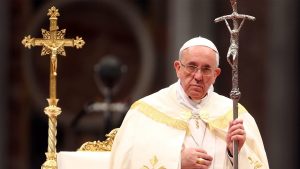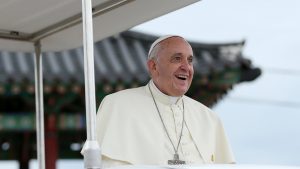Matteo Ricci
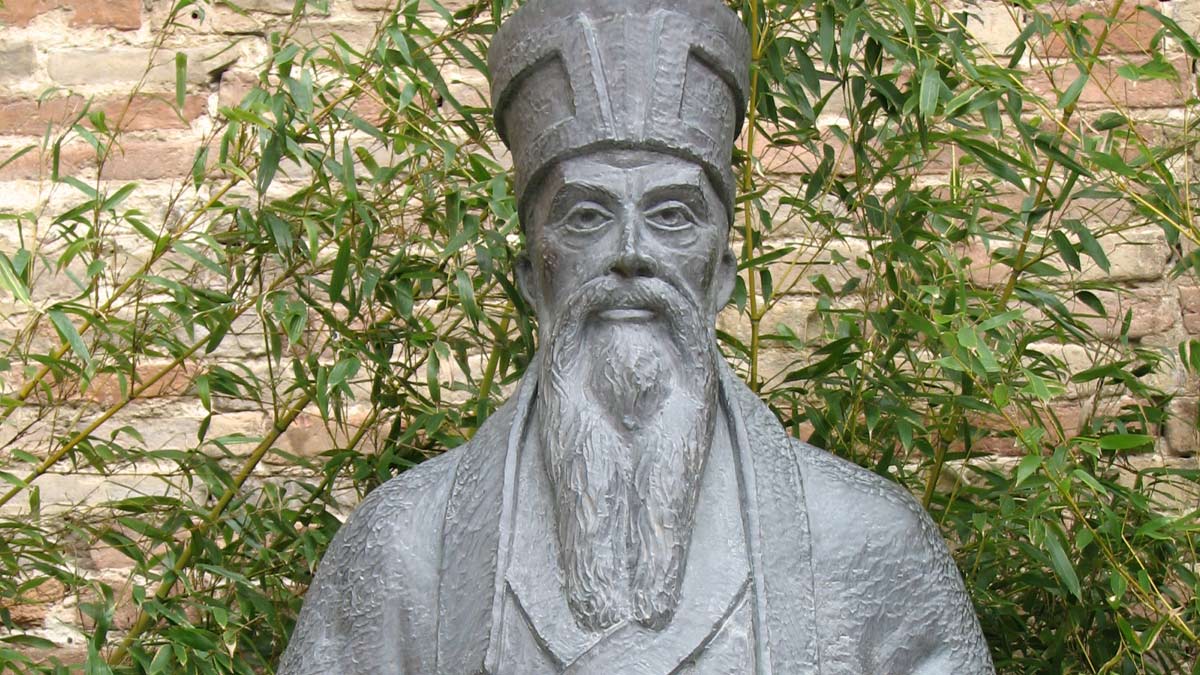
The early years of the Society of Jesus saw monumental missionary work. One of the most famous and successful missionaries of this time was Matteo Ricci, whose work in China played an important role in the acceptance of Christianity there.
Matteo Ricci was born in Italy in 1552, the same year that Saint Francis Xavier died, a man in whose footsteps Ricci would follow. At the age of eighteen he entered the Society of Jesus at the Roman College, where he studied mathematics and physics in addition to theology and philosophy. Though a path of teaching and professorship was open to him, he requested to be part of a missionary expedition to the Far East, and so left from Lisbon in 1578. Following the same route as Xavier decades earlier, Ricci arrived in Goa in western India, where he taught and ministered for several years. In 1580 he was ordained a priest, and two years later at the order of Alessandro Valignano, who was in charge of the Jesuit missions in the East Indies, travelled to Macau, a Portuguese settlement on the Chinese coast.
From Macau Ricci travelled to Zhaoquing, where he and another Jesuit, Michele Ruggiero, were allowed to set up a mission, the first in the Chinese mainland. Here he applied himself to learning Mandarin, the language of the educated elite. Initially, Ricci and Ruggiero dressed in the plain robes of Buddhist monks, seeing this as the closest approximation for them in Chinese society. However, as he read more of the beliefs of the Chinese and talked with scholars he discovered a teaching far more compatible with Christianity: that of K’ung Fu-tzu, or Confucius, as Ricci translated it. Confucian ideology permeated through Chinese tradition, and Ricci saw these values as being in part consistent with the philosophies he was trying to bring to these people. In order to explain Christian concepts, he began presenting them in a light consistent with Confucianism, drawing on the parallels between teachings.
Ricci travelled to Nanchang and finally to Beijing, where he presented gifts of a clock and a harpsichord to the Emperor. When the clock wound down, Ricci was called upon to come and demonstrate how to make it work again. For this he was called into the Forbidden Palace, the first European to be given the honour. In Beijing Ricci continued his teaching, interpreting Confucian wisdom. He wrote a book, The True Meaning of the Lord of Heaven, which examines and argues for common fundamentals between Christian and Confucian teachings. Widely regarded as his most important work, it has however been criticised for altering and omitting Christian ideals to fit with eastern thinking.
Ricci remained in Beijing for the rest of his life, working tirelessly in his efforts to convert. His years in Beijing were his most prosperous, he was widely sought by scholars and made more than one hundred converts in his first five years. So exhaustive was his work that in 1610 he fell ill, having reduced himself to one meal a day or less, and died soon after. He left a profound legacy, both in the numbers to whom he brought Christianity and in his work on the philosophies of the East.
Click here for a lecture on Ricci » by Antoni Üçerler SJ, Director of the Ricci Institute at the University of San Francisco.
Photo: Abraham Sobkowski [Wikimedia Commons]


